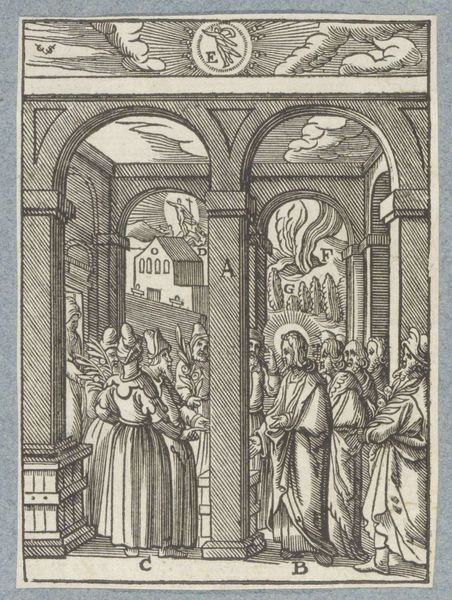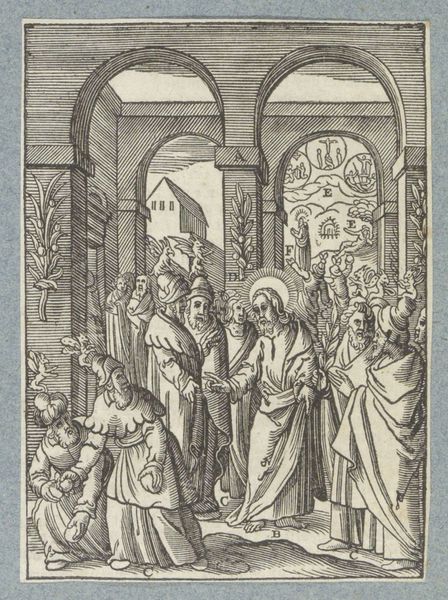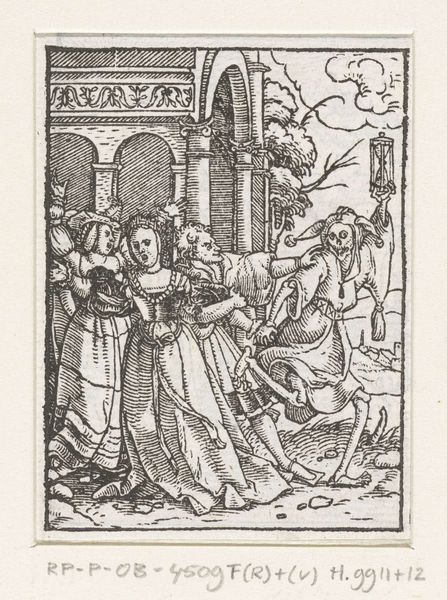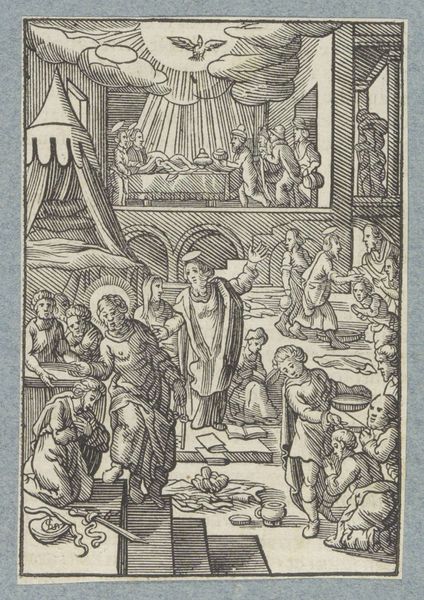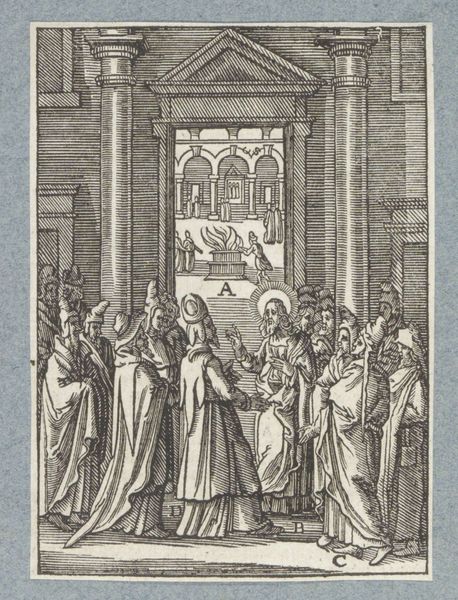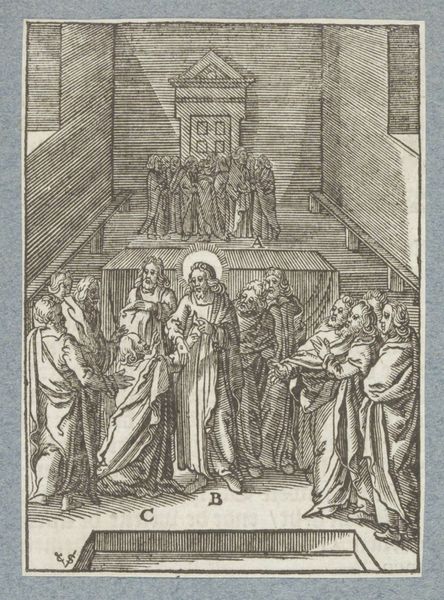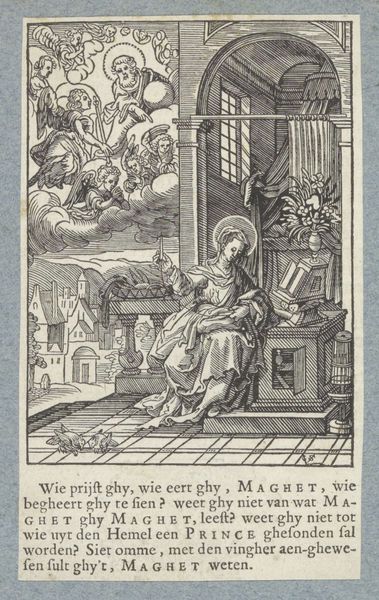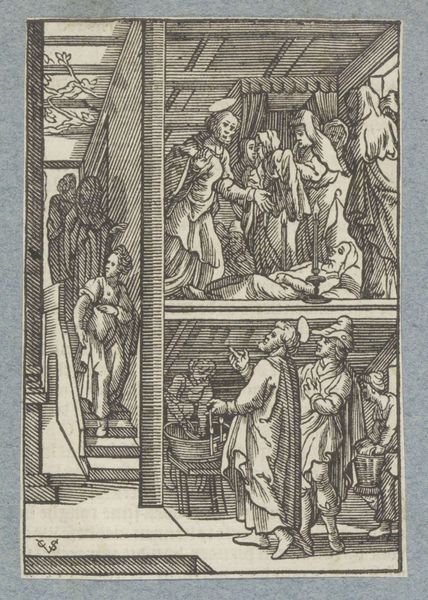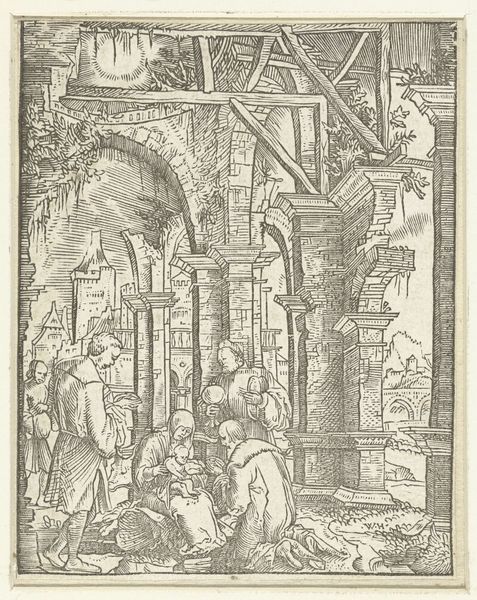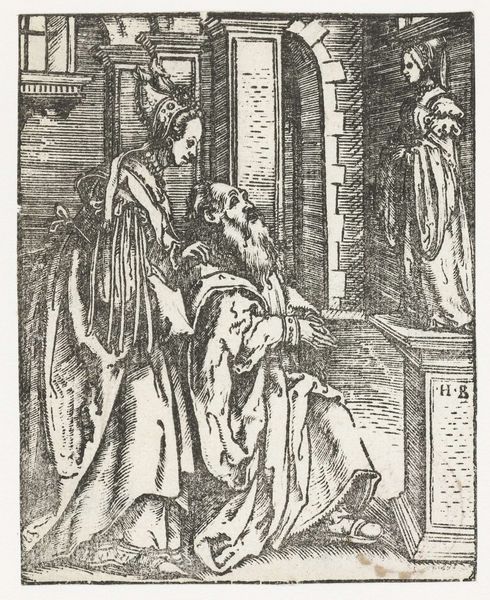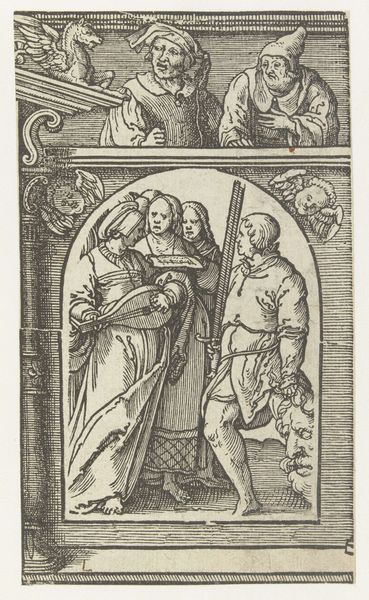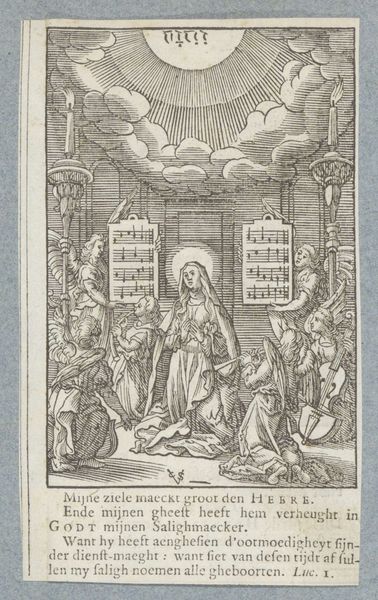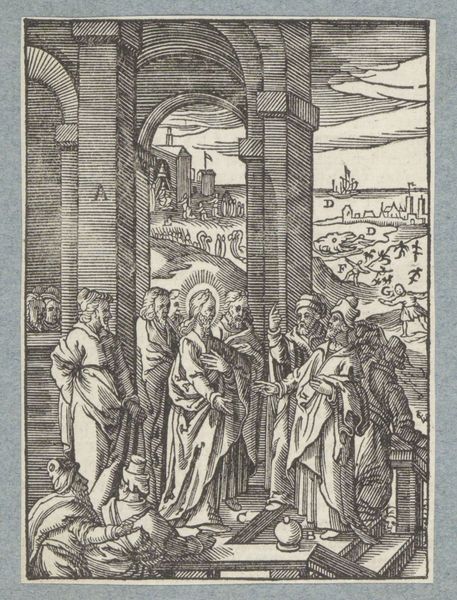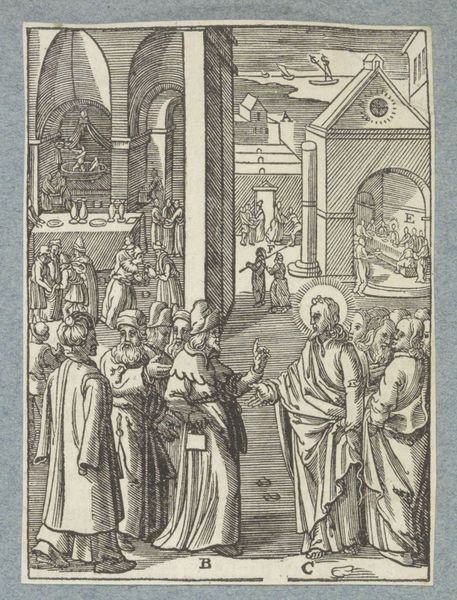
print, engraving
#
pen drawing
# print
#
11_renaissance
#
history-painting
#
engraving
Dimensions: height 57 mm, width 46 mm
Copyright: Rijks Museum: Open Domain
Christoffel van Sichem II created this woodcut depicting a saint kneeling before a crucifix, sometime between 1600 and 1658 in the Netherlands. Produced during a period of intense religious conflict in Europe, images like these played a crucial role in shaping popular piety. The visual codes, such as the kneeling figure, halo, and crucifix, create a narrative reinforcing religious doctrine. Note the architectural setting; the saint kneels in what appears to be a church, a space controlled by religious institutions. The inclusion of angels suggests divine approval of this act of worship. To understand this print fully, we delve into the religious and social context of the 17th-century Netherlands. Was it intended for private devotion or public display? Did it serve as a tool for religious instruction or a symbol of resistance against opposing beliefs? These are the kinds of questions we historians ask, consulting historical documents and theological treatises to better understand the artwork.
Comments
No comments
Be the first to comment and join the conversation on the ultimate creative platform.
